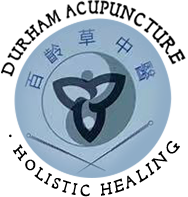Acupuncture: What is Acupuncture?
What is Acupuncture?
Acupuncture is an ancient Chinese medicine-based approach to treating a variety of conditions by triggering specific points on the skin with needles. Paul Kempisty, licensed acupuncturist with a MS in traditional Oriental medicine, explains, “[Acupuncture is] a minimally invasive method to stimulate nerve-rich areas of the skin surface in order to influence tissues, gland, organs, and various functions of the body.”
“Each acupuncture needle produces a tiny injury at the insertion site, and although it’s slight enough to cause little to no discomfort, it’s enough of a signal to let the body know it needs to respond,” Kempisty says. “This response involves stimulation of the immune system, promoting circulation to the area, wound healing, and pain modulation.” Contemporary research on acupuncture relies mainly on this theory.
Acupuncture is a range of procedures all of which involve stimulating anatomical points or meridians on the body using different techniques. However, acupuncture can also include electro-acupuncture in which the needles are stimulated by electrical current, ear acupuncture, cupping, and moxibustion, in which the mugwort herb is burned on the end of the acupuncture needles.
What’s the philosophy behind acupuncture?
The concept of qi isn’t too out there — think of it as your body’s natural inner workings. Sometimes you’re more prone to illness when feeling stressed or anxious. When you’re relaxed and healthy, your body physically reflects that too. After all, your mood, mental health, and general well-being do affect your physical health. Thus, acupuncture aims to assist people in achieving balance, or qi, and, as a result, provide relief for many ailments.
What does acupuncture do?
- Joint and muscle pain
- Manage weight issues
- Facial rejuvenation.
- Allergies and asthma
- Anxiety and depression
- Rheumatism arthritis
- Hypertension
- Insomnia
- Menstrual cramps
- Menopausal syndrome
- Fertility and sterility
- Morning sickness
- Prostatitis
- Headache and migraines
- Sprains
- After stroke rehabilitation
- Facial paralysis
- Trigeminal neuralgia
- Sciatica
- Stiff neck
- Acne
- Indigestion
- Colitis and constipation
- Cancer pain
- Diabetes
- Tennis elbow and sports injuries
- Frozen shoulder
- Tendinitis, bursitis
- Carpal tunnel syndrome
- Quit smoke
- Alcohol dependence




